( 7 minute read )
Electric Daisy Carnival is a festival held every year in Las Vegas, Nevada and happens to be one of the biggest electronic music events in the world. Every mid-May Since 1991, EDC has attracted hundreds of thousands of EDM fans from across the country to rave to loud music, pop their eardrums, and… a number of other things. Nonetheless, it’s an exhilarating 3-day event that is, as their website states, “celebrating and welcoming to everyone no matter your shape, size or color.” (“What we believe,” 2024).
However, despite claims of diversity and inclusivity in their attendees, EDC’s lineup of DJs/performing acts tell a slightly different story. Leading up to EDC 2021, twitter user BlackRadioactiveBoi went through and searched the demographics of every name on the festival announcement poster. According to them, out of the 264 individuals performing the event, 23 were Asian, 23 were Latino, 16 were Black and only 1 was Native American. On top of that, only 20 were female, and not a single one of them was black and female. (“Due to popular demand,” 2021).
Now, of course, this is just one festival held in the US and is not necessarily representative of all major EDM festivals around the world. Rather, I think situations like EDC only reinforce the current narrative EDM has had for many years now: that it’s only made by, and meant for, one certain group of people.
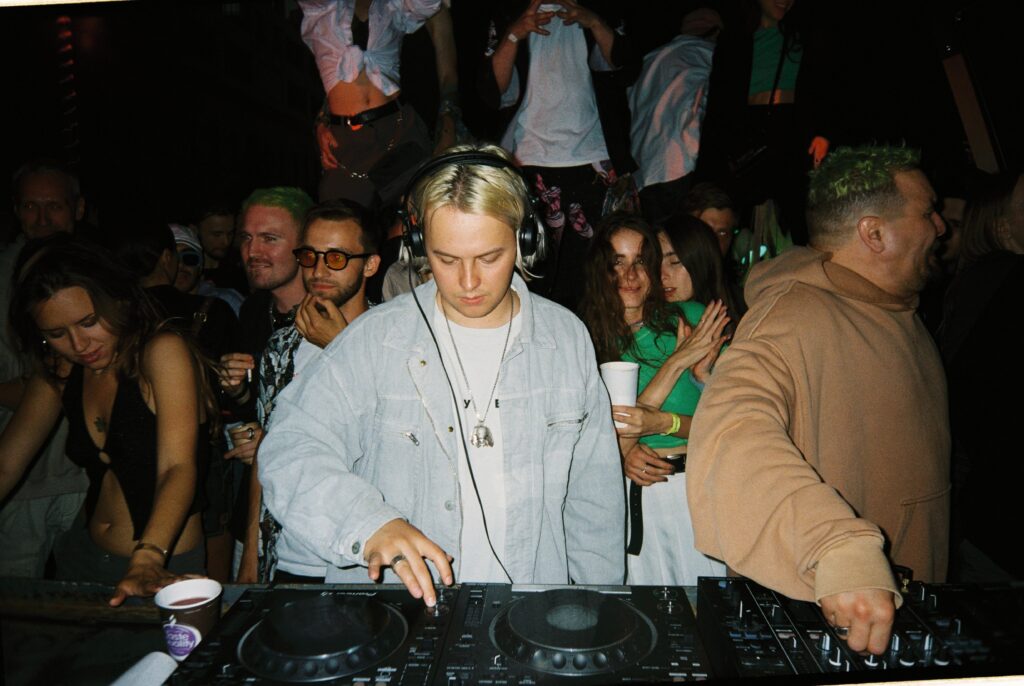
For some background, EDM, or electronic dance music, is a phrase used to classify music that would play in clubs, raves, and underground spaces back in the day. This includes some more publicly known genres like Disco, House and Techno, to the slightly more obscure ones like Garage, Trance, Drum n Bass and yes even Dubstep. These originally were the sounds of subcultures that gathered marginalized people into community, helping many escape their struggles in the real world. What we know of today as Techno, for example, originally started in 1980s Detroit, being played in clubs for black, brown, queer, and lower income people. But, as music does, when the sounds started to become more popular, they evolved and adapted to their newer audiences.
Gradually, Techno was adopted into mainstream pop culture and embraced across the globe, finding huge popularity in late 80s and early 90s Europe. In conjunction with House, which started under similar circumstances in Chicago, the sounds would take Europe and the UK by storm and helped birth genres like Trance, UK Rave, Euro-dance and Progressive House. All of these genres would later become staples in clubs from Barcelona to Berlin only to pay Detroit and Chicago dust. I’d argue that this is the point in time where electronic dance music began being colonized.
Moving into the 90s, House and Techno were slowly being overshadowed by their newer European contemporaries, as more DJ’s began popping up and touring throughout Western Europe. With a broader world audience, there was a now new standard developing and what was once a diverse and borderless playground allowing for innovators across the globe soon became became a scene that was pretty elitist. By the 2000s and early 2010s, you weren’t considered a “real” EDM fan if you didn’t party in Ibiza, listen to Daft Punk, or see David Guetta play at Coachella. The foundations of Techno and House were mostly completely removed from the conversation at this point. However, that sense of liberation and communal escapism has remained a steady aspect of EDM culture even to this today.
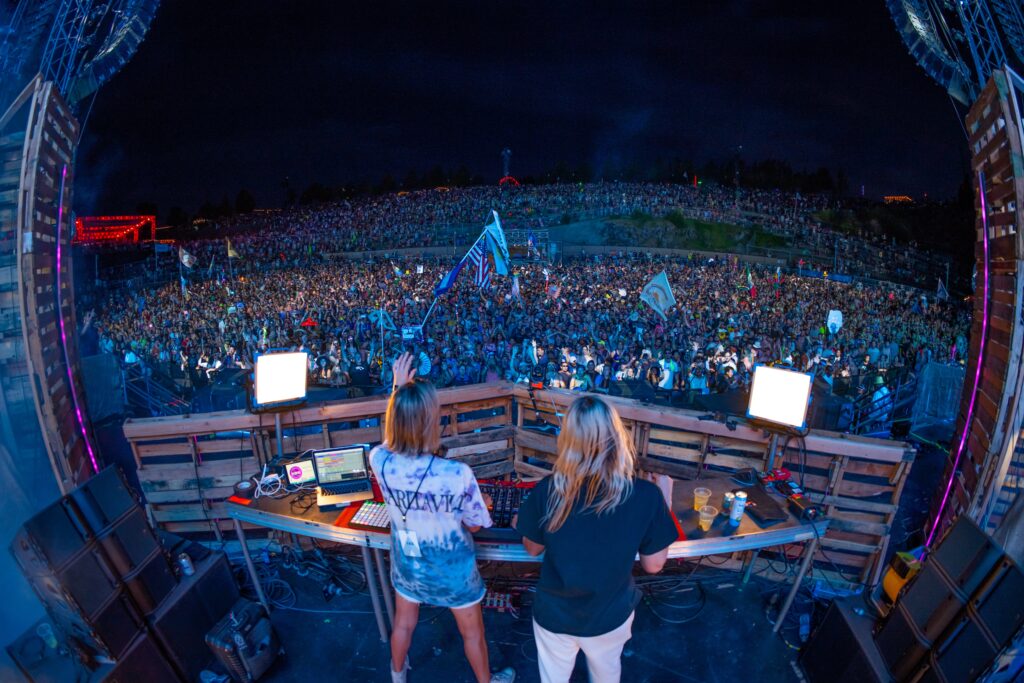
This is something big venues and festivals are keenly aware of and it’s become their biggest selling point; an escape. Or at least the promise of a really good time with bright colors and lights. In retrospect, it makes sense why EDM was flung into mainstream pop music after the 2008 Housing Crash and later financial crisis. Humanity was collectively suffering and just wanted out. Luckily, EDM offered us a way there.
In the article titled Paradise: on EDM, Speculation, and Finance, Alexander Iadarola documents this cultural shift in music and how execs and investors followed the EDM trends to capitalize on a newly emerging consumer class: Mostly broke, mostly white, college educated millennials who graduated into a failing economy (Iadarola 2016). As the US and Europe recovered, this group would soon become the new main enjoyers of EDM and would catapult the careers of now major names in the scene. Some already long established like Guetta, Eric Pryndz, and Tiesto, but also many newcomers like Calvin Harris, Diplo, Zedd, Marshmello, Skrillex, and Avicii (rest in peace).
Now hopefully you see where I’m getting at here. Looking at the names above and maybe after a few quick searches of “best DJs of all time” will expose a very white, very male trend that now dominates the industry.
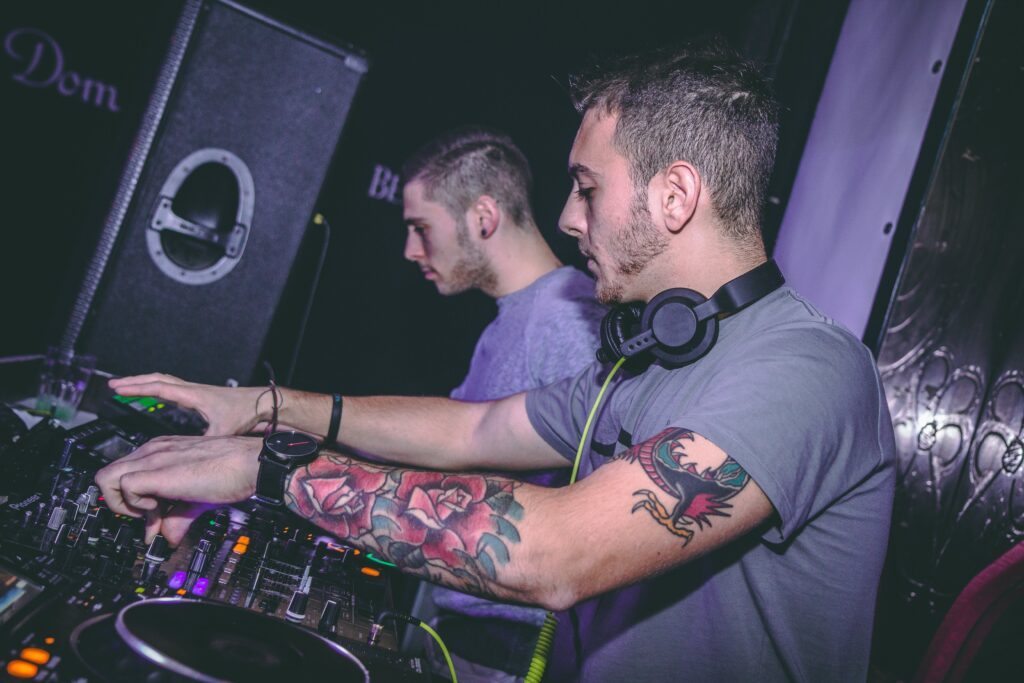
This trend is nothing new for many aspects of contemporary music, however. Genres like Rock n’ Roll and Country being prime examples of this issue. Though, at least in recent times, they have had a greater and more public acknowledgement of their black origins. It’s the bare minimum but it’s still something.
For many electronic music genres, however, this is not the case. I think some of it is due to the nature of being a disc jockey. It’s much easier to adapt a sound so long as you have the resources to buy and skill to spin records. Thus many sub genres have had their origins and creators completely glossed over as sounds moved from place to place and evolved. Many of us, myself included, would likely never know the impacts Juan Atkins had on Techno or Frankie Knuckles on House without doing our own research. Instead, when these genres are mentioned, we’re more likely to imagine Eurocentric names and faces.
Now there’s several guilty parties here, first being the music media publishers and execs who never made concerted efforts to preserve origins when selling Techno or House abroad. Second is the DJs themselves, using these records and expanding on the sound but never truly acknowledging their sources. While we can and should appreciate what today’s DJs have done for the music, it would be negligent if our appreciation started and ended with only them. Realistically, it would do a lot good if popular DJs were conscious of their genres’ history and spoke about it. Using their platforms for good and in a way that acknowledges the disparities caused by race, gender, class, and so on since these issues also exist in electronic dance music. I doubt that’ll happen any time soon though, but at least we get moments like this:
Jokes aside, thanks to the internet and social media, someone like David Guetta, a 56 year old, multimillionaire DJ from France, has much more awareness of the world than people have had anytime before. And especially with all that’s been going on lately, it’s clear for us now more than ever just how interconnected our world is and how we as individuals have an impact on global society. A society, I’ll add, we are all members and citizens of.
So when I say electronic music needs decolonizing, I mean reframing the narrative and reclaiming space for the entirety of global society, not just for some people. It does not mean completely removing white men from the space, or imitating their dominance. Rather it’s recognizing that it has become a space preferential to one group and addressing the harms that causes. When we only make spaces acceptable for one type of body, we push out people who don’t fit that mold and “we lose the essence of what dance music is and should be: a place for everyone” (McCarthy 2015).
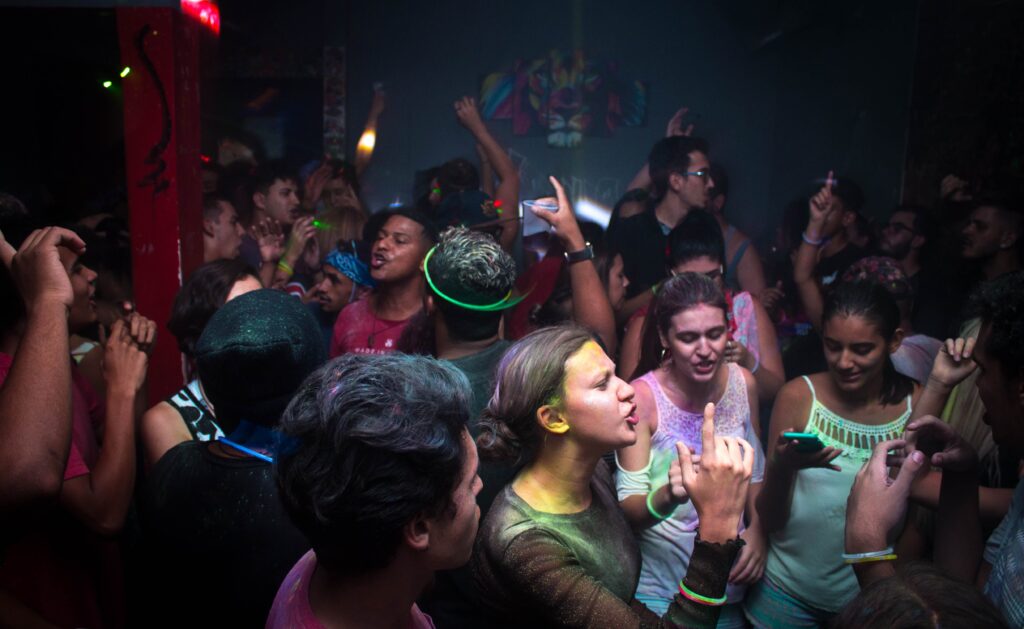
So, in an effort to truly make the music more inclusive, what can you and I do?
First, we should stop using the term EDM to describe every and all electronic dance music genres. We don’t live in 2012 anymore. It’s a lazy term that erases a lot of the nuance and cultural value behind the many subgenres falling under the electronic umbrella. Instead, try to refer to DJs and their sounds accurately and be specific where possible. Ishkur’s Guide to Electronic Music was a really helpful entry point for me in understanding the evolution of these subgenres and their origins. From there, just searching “who started x” or “where is y from” will likely give you a good history lesson while taking you down a few rabbit holes.
Second, be intentional and change up your consumption habits. Find more non-white-male/cis DJs to listen to. To help in your search, I’ve included a “small” list of some of my favorite DJ’s and their sets from the past few years. Each helped enhance my understanding of genres like Jungle, Garage, Hardstyle, Acid House, and more and are key examples of just how boundless and exciting this space is when we allow for every type of person to create it. Most sets were from the Boiler Room label, but there are a lot of groups/publishers like Rinse FM, Lot Radio, MixMag, Resident Advisor, HÖR Berlin, and other smaller collectives uploading great moments online. Moments that would otherwise only exist in memory, on SoundCloud, or as mp3s in the dark depths of Reddit.
Last, and I think most importantly, please do not believe the hype. Understand that many of these big name festivals pick big name DJs to sell big name tickets, so you’re likely missing out on a lot of interesting and innovative talent by only going to ‘EDC-type’ events. Many of these marginalized DJs aren’t even getting an invite in the first place, so your best bet really is to support them directly. Stream their sets and tracks, follow their socials, tell your friends about them and maybe even try to see them live like you would a traditional musician. I’ve often found that many of these DJ’s are even creating smaller events and spaces themselves to support one another in independent collectives. I can almost guarantee that places like that are where you’ll find the real crate diggers, tastemakers, and room shakers who are actively decolonizing and reclaiming space.
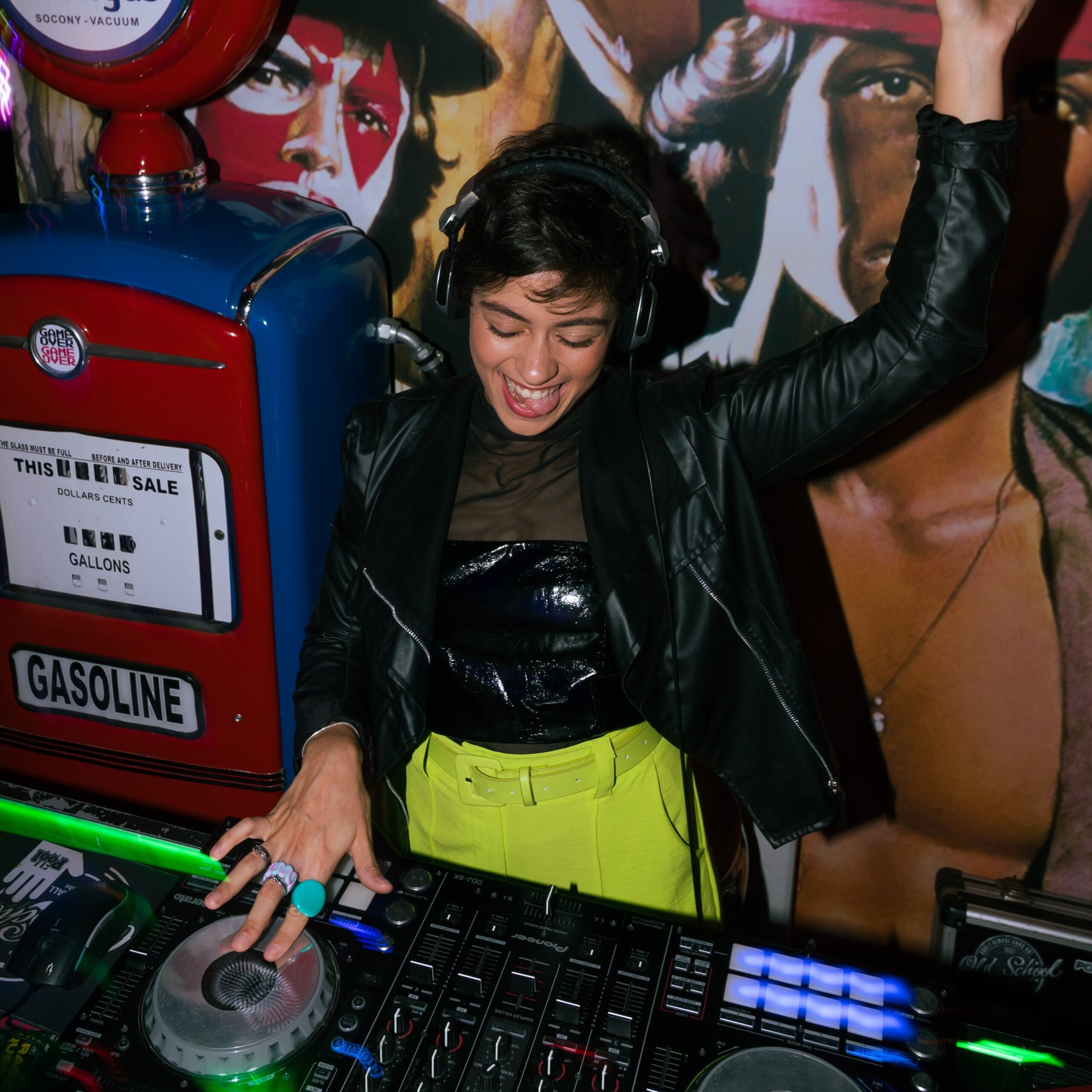
As with many other aspects of our western lives, decolonizing electronic music starts at the individual level and can build collectively. It is something that requires us to regularly question what we think is normal and take time to truly appreciate the origins of things we say we love or enjoy. For me, exploring and uncovering the histories of electronic and dance music genres has added so much more color and vibrance to music and it’s shown me many worlds that I didn’t know existed (and for a long time).
Electronic dance music has always been by, and for, the people and we live in a really unique time to be an enjoyer with so many different styles and personalities in the world available to us to hear. I think it’s more important now than ever that we embrace this music’s multiformity. It may even help us as people adopt a more collective global identity and build necessary cross-cultural solidarities in the coming future.
Okay, until next time, peace. ✌🏾
–Make sure to check out a set or two!
Some of My Favorite Sets!
Works Cited
- Iadarola, Alexander. “Paradise: On EDM, Speculation, and Finance.” Rhizome, 16 Jan. 2020, rhizome.org/editorial/2020/jan/16/paradise-on-edm-speculation-and-finance/.
- Matos, Michaelangelo. “The Mainstreaming of EDM and the Precipitous Drop That Followed.” NPR, NPR, 13 Nov. 2019, www.npr.org/2019/11/13/778532395/the-mainstreaming-of-edm-and-the-precipitous-drop-that-followed.
- McCarthy, Zel. “EDM Doesn’t Have a Women Problem, It Has a Straight White Guy Problem.” VICE, 24 Mar. 2015, www.vice.com/en/article/gvnpa3/edm-doesnt-have-a-women-problem-it-has-a-straight-white-guy-problem.
- Wheeler, Seb. “How the Dance Music Industry Failed Black Artists.” Mixmag, 21 Oct. 2020, mixmag.net/feature/how-the-dance-music-industry-failed-black-artists.
